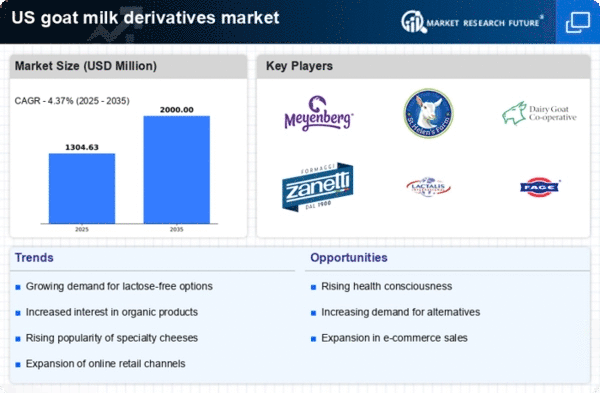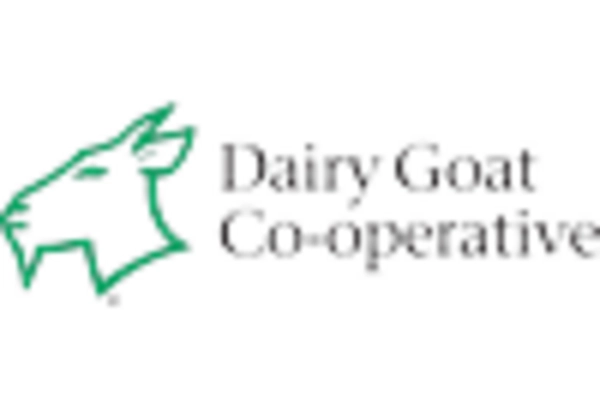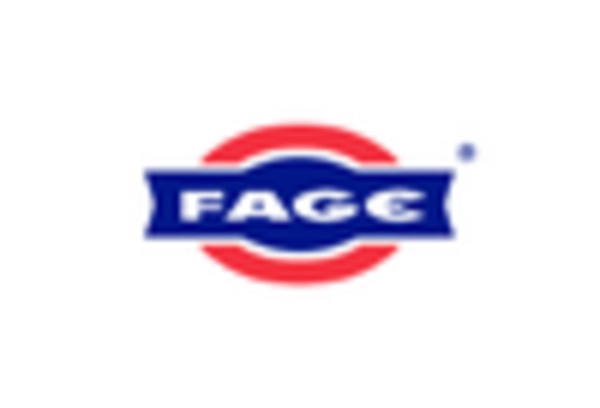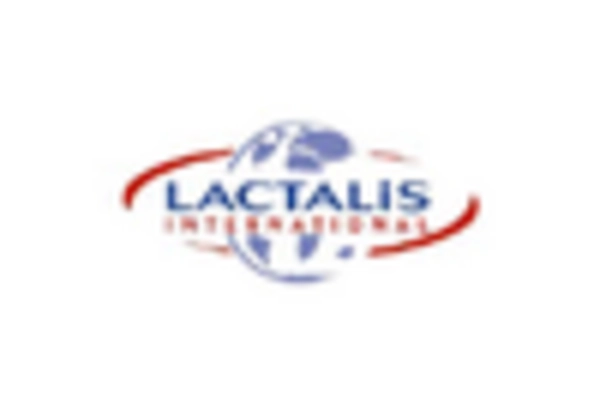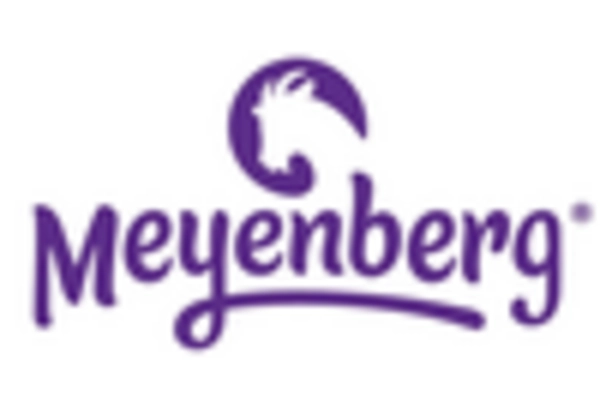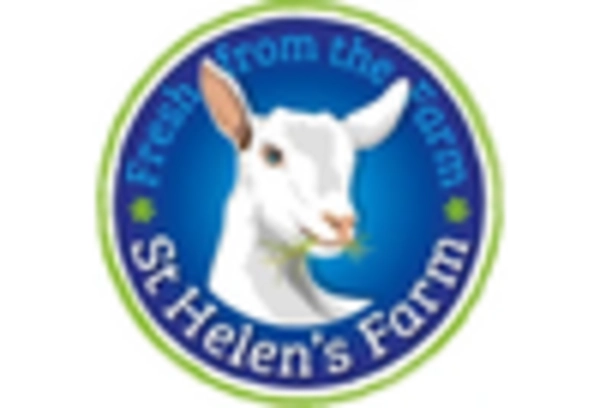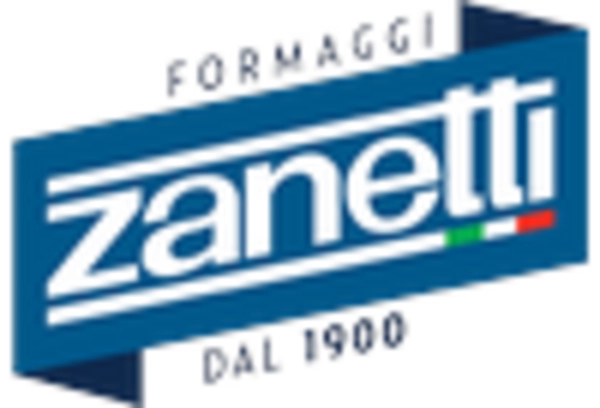Diverse Culinary Applications
The versatility of goat milk derivatives in culinary applications serves as a significant driver for the market. Goat milk can be transformed into a variety of products, including cheese, yogurt, and ice cream, appealing to a wide range of consumers. The goat milk-derivatives market is witnessing an increase in innovative recipes and product offerings that cater to diverse culinary preferences. This adaptability not only enhances consumer interest but also encourages experimentation in cooking and baking. Market analysis shows that the demand for goat cheese has risen by 25% over the past few years, indicating a robust market potential for goat milk derivatives in the food industry.
Sustainable Farming Practices
Sustainability is becoming a crucial consideration for consumers, influencing their purchasing decisions in the goat milk-derivatives market. Goat farming is often associated with lower environmental impact compared to traditional dairy farming, as goats require less land and water. This aspect appeals to environmentally conscious consumers who are increasingly seeking sustainable food sources. The goat milk-derivatives market is likely to benefit from this trend, as brands that emphasize sustainable practices may attract a loyal customer base. Recent surveys indicate that approximately 70% of consumers are willing to pay a premium for products that are sustainably sourced, suggesting a potential growth opportunity for the goat milk-derivatives market.
Nutritional Benefits of Goat Milk
The nutritional profile of goat milk is increasingly recognized as a key driver for the goat milk-derivatives market. Goat milk is rich in essential nutrients, including calcium, potassium, and vitamins A and D, which are vital for overall health. Studies suggest that goat milk may have superior digestibility and bioavailability of nutrients compared to cow's milk, making it an attractive option for consumers. The goat milk-derivatives market is capitalizing on these nutritional benefits, with products such as cheese and yogurt gaining popularity among health-conscious individuals. Market data indicates that the sales of goat milk products have increased by 15% annually, reflecting a growing consumer base that prioritizes health and nutrition.
Growing Interest in Specialty Foods
The trend towards specialty foods is influencing the goat milk-derivatives market positively. Consumers are increasingly seeking unique and artisanal products that offer distinct flavors and health benefits. Goat milk derivatives, often perceived as gourmet items, fit well within this niche. The goat milk-derivatives market is likely to see growth as more consumers explore specialty cheeses and yogurts that highlight the unique characteristics of goat milk. Market data suggests that the specialty food sector has expanded by 30% in recent years, indicating a strong consumer appetite for high-quality, unique food products. This trend presents a promising opportunity for the goat milk-derivatives market to expand its reach.
Rising Lactose Intolerance Awareness
The increasing awareness of lactose intolerance among consumers is a notable driver for the goat milk-derivatives market. Many individuals who are lactose intolerant find goat milk to be a suitable alternative due to its lower lactose content compared to cow's milk. This shift in consumer preference is reflected in market data, indicating that the demand for lactose-free products has surged by approximately 20% in recent years. As more consumers seek dairy alternatives, the goat milk-derivatives market is likely to benefit from this trend, as it offers a viable solution for those with lactose sensitivity. The goat milk-derivatives market is thus positioned to capture a growing segment of health-conscious consumers looking for digestible dairy options.


